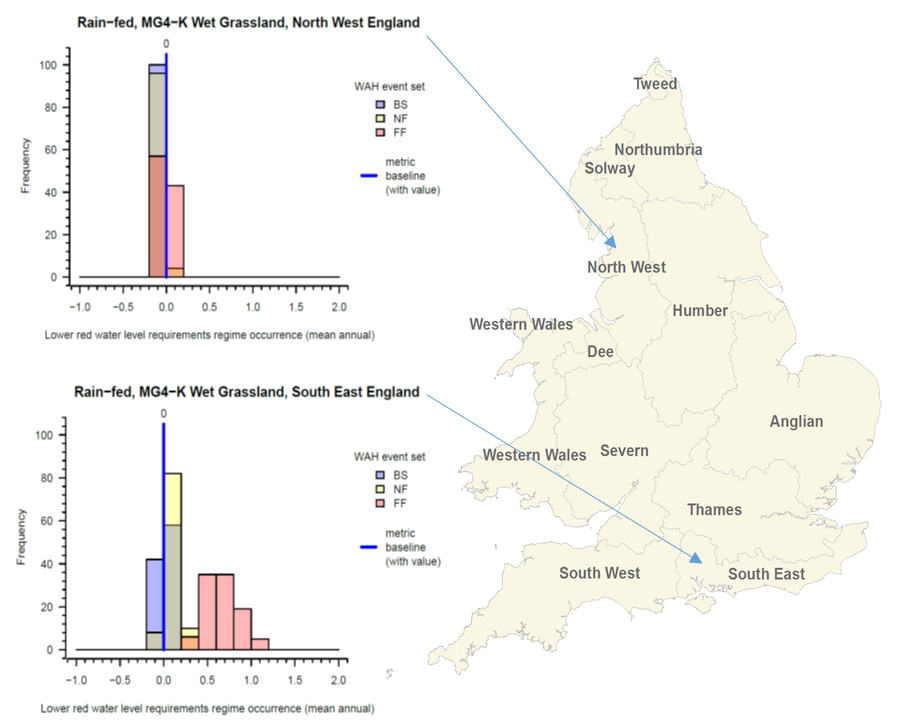Key science findings
- Droughts can alter the processes that govern ecosystems, causing changes to physical character, species occurrences and numbers, their interactions and benefits they provide to people.
- River-fed wetland ecosystems are more resilient to drought than rain-fed wetlands
- Wetlands in the south and east of England and Wales are more likely to be altered by climate change than those in the north and west
Introduction
By definition, wetlands are ecosystems characterised by periods of saturation or inundation. Because they are not all constantly wet, the species occurring in wetlands are adapted to periods of dryness. However, drought events are periods of extreme aridity during which species may disappear and physical characteristics, such as soils, may change. Recovery of wetlands depends on the intensity and duration of the drought and the proximity of species reservoirs to support recolonization. If intensity, duration or frequency of droughts increases in the future, greater changes may result and the ability of wetlands to recover may be compromised.
Research methods
We have developed simple computer models of different wetland types. They estimate the response of the wetland - in terms of water table level, vegetation community and birds – to meteorological inputs, such as rainfall and temperature. By providing the models with historical met inputs we can replicate the actual response of the wetlands in England and Wales over the recent past. We have developed numerical scores (metrics) to summarise this response. We have focused on the response to a series of historical drought events. By providing the model with projected future meteorological inputs, we can estimate the response of wetlands to alterations in drought intensity, duration and frequency under climate change. We use a traffic light colour coding system to summarise whether the wetland is at no (green), moderate (amber) or high (red) risk of ecological change in the future.
Projected risk of ecological change to wetlands given alterations to the intensity, duration and frequency of droughts under climate change
- Droughts can alter the processes that govern ecosystems, causing changes to physical character, species occurrences and numbers, their interactions and benefits they provide to people
- River-fed wetland ecosystems are more resilient to drought than rain-fed wetlands
- Wetlands in the south and east of England and Wales are more likely to be altered by climate change than those in the north and west

James Blake Contact: jarib@ceh.ac.uk



